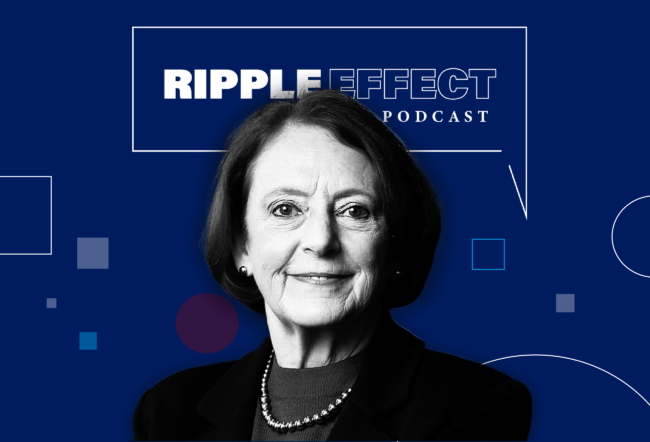In the U.S. Justice Department’s largest civil settlement ever with a single entity, Bank of America (BoA) agreed on August 21 to pay $16.65 billion to put to rest allegations by federal and state law enforcement agencies of mortgage-related fraud during the financial crisis era. The agreement follows on the heels of two separate Justice Department settlements last year of financial crisis-era fraud with J.P. Morgan Chase & Co. and Citigroup.
Of BoA’s total tab, about $10 billion will go to settle federal and state civil claims and $7 billion to consumer relief, including principal reduction on underwater loans, new loans to creditworthy but struggling borrowers, community assistance, and affordable rental housing. In addition, the bank will accept an independent monitor to oversee compliance with the agreement.
BoA had engaged in a drawn-out battle with the Justice Department over the settlement, balking at taking a big hit for Countrywide Financial Corporation and Merrill Lynch’s pre-2008 activities prior to BoA’s acquisition of the two. For many weeks, BoA held its offer below Justice Department demands until a July 30 ruling from Manhattan U.S. District Court Judge Jed Rakoff precipitated a breakthrough, according to press reports. Later the same day as Rakoff’s negative ruling against Countrywide in a separate mortgage-related fraud case, Attorney General Eric Holder called BoA CEO Brian Moynihan, threatening to file suit against BoA the next day if the bank did not raise its settlement offer, press reports noted. BoA relented and then entered into the final stretch of negotiations with the government.
In its settlement, BoA acknowledges that it, Countrywide and Merrill Lynch sold residential mortgage-backed securities (RMBS) to investors without disclosing the deteriorating quality of the underlying loans in the securitized packages, leading eventually to huge investor losses. Fannie Mae, Freddie Mac and the Federal Housing Administration (FHA) were among those misled by BoA’s failure to disclose accurate information.
“… the part [of the BoA settlement] that is consumer relief will not cost nearly as much as the headline number would suggest.” –Krista Schwarz
Too Big to Jail
For Holder, the record settlement could help quell some of the criticism lobbed at him for not going after big banks at the center of the 2008 credit crisis more aggressively. Last year, Holder said at a Senate Judiciary Committee hearing that some banks are too big for prosecutors to pursue without considering the impact on the economic system — a phenomenon mocked as “too big to jail” by critics. To date, the Justice Department has pursued few civil or criminal cases against individuals responsible for mortgage-related fraud in the financial crisis.
For his part, BoA CEO Moynihan says settlement of the Justice Department case, which he has spent his four and a half years at the helm fighting, puts the bank’s crisis-era problems behind it. The U.S. Federal Reserve this year accepted the bank’s new capital plan, allowing it to pay dividends again, and Moynihan is ready to chart BoA’s future. As for Wall Street, “though this is a larger dollar value than the J.P. Morgan Chase deal, these settlements are generally well received by financial markets,” says Wharton finance professor Krista Schwarz. “Financial markets just want to get the uncertainty behind them.”
Missing the Target
At a record $16.65 billion, is the BoA settlement as fierce as it sounds? Wharton and University of Pennsylvania Law School experts say that in many ways, the settlement misses the mark. For one, says Schwarz, “the part that is consumer relief will not cost nearly as much as the headline number would suggest. For example, it includes principal write-downs on mortgages that Bank of America holds, but that is generally going to be writing off money that Bank of America could never have collected anyway.”
What’s more, the settlement doesn’t directly compensate those hurt and punish those accountable, say experts.“In this settlement, the core is defrauding the investors in securitization transactions,” notes David Skeel, a University of Pennsylvania Law School corporate law professor. “I understand the desire to help homeowners, but litigation based on other wrongs seems to be a really indirect way to them. It’s very political and a bit arbitrary.”
Kent Smetters, a Wharton professor of business economics and public policy, points out that those punished by the big-dollar settlement — BoA’s current shareholders — aren’t necessarily the ones who violated the law. “Probably my biggest concern is the conflict of interest faced by both parties negotiating. The government has the incentive to collect a lot of fine revenue, and bank executives have the incentive to write large checks, especially if there is an implicit understanding that the government won’t really pursue additional civil or criminal charges. But I am concerned that the bank’s shareholders are not being properly represented.”
In addition, consumers who suffered from by BoA’s relaxed crisis-era practices on mortgage underwriting standards are likely out of luck, while a different set of consumers altogether could benefit. “The people who held subprime mortgages that they could not sustain and who lost their homes in connection to the pre-2008 mortgage market are lost from the picture” by now, says William Bratton, deputy dean of the University of Pennsylvania Law School and co-director of the Institute for Law and Economics, a joint research center of the law school, Wharton and the University of Pennsylvania’s economics department.
“The bum debt papers were generated by large institutions on a mechanized basis. The CEOs were far away from the operations. They made bad business decisions, but they are not criminal.” –William Bratton
Still others who were hurt are also left without compensation, adds Catherine M. Schrand, a Wharton accounting professor. “To the extent that Bank of America’s activities contributed to the [overall economic] crisis, many more people were indirectly harmed, and the settlement cannot help them.”
To achieve more perfect payback, many, including prominent Justice Department critic U.S. District Court Judge Rakoff, say the agency should pursue individuals at banks responsible for dubious underwriting and disclosure practices. That may sound right in theory, but the cases are often difficult to bring, say University of Pennsylvania law experts. “These cases [against individuals] are the big missing piece of the aftermath of the financial crisis,” acknowledges Skeel. But “often, the most visible executives at the banks weren’t directly involved in any of the misbehavior. In the normal mortgage securitization process, it’s not obvious that someone like Jamie Dimon committed a crime.”
Bratton agrees: “The bum debt papers were generated by large institutions on a mechanized basis. The CEOs were far away from the operations. They made bad business decisions, but they are not criminal.”
Turning Bad to Good
Still, is it possible that big-dollar settlements could provide some deterrent to future bad behavior? It’s unlikely, as it’s difficult to change human behavior, but possible in some ways, says Schrand. Her research shows that “many frauds occur because managers slide down a slippery slope.” Even though Bank of America managers likely realized that the mortgage pool risk was increasing, “they sold the pools anyway, thinking that the increased risk wasn’t that significant, so they were able to justify it in their minds,” she notes. “Then the risk grew but by then, BoA was in too deep. They [had to] continue not disclosing.”
Jill Fisch, a University of Pennsylvania law school professor and co-director of the Institute for Law and Economics, agrees: “Given the pervasiveness of practices, it’s hard to imagine that people at the time would have been swayed by the prospect of financial liability. There are hundreds of thousands of individual mortgage bankers and traders, and [other] people who had a huge role, that this settlement does not in any way directly come to terms with.”
Yet, large settlements like BoA’s could encourage banks to increase monitoring of employee behavior, says Schrand. “While individuals may still have a natural tendency to behave badly, the firm has internal controls that can detect or prevent such behavior.”
Notes Bratton: “After passage of the Dodd Frank Act, it’s very important to take aggressive government enforcement action if any of this regulation is to be taken seriously. As the magnitude of settlements continues to increase and become more serious, there will be an effect, though no prevention.”
Onward and Upward
Whether through law enforcement or other means, a transformation in banking culture is sorely needed, say experts. “The impact of enforcement action in the mortgage arena [and in other financial areas] is a profound loss of confidence in the integrity of financial system,” says Karen Shaw Petrou, managing partner at Federal Financial Analytics, a bank consulting firm in Washington, D.C. “The challenge is to establish cultures in financial services firms that protect the customer, but it’s very difficult to mandate good behavior. It’s going to take a long time to come up with a renewed balance built into the marrow of the financial system, which is controlled through the trading side of the business, which is focused on the short-term.”
“We actually don’t want too much confidence in the banking sector. Rather, we want the right amount based on market fundamentals.” –Kent Smetters
Smetters says that a lack of public confidence in the banks may help financial institutions find their way: “We actually don’t want too much confidence in the banking sector. Rather, we want the right amount based on market fundamentals. The market believes that the government will bail out the bigger banks that are deemed to be Systemically Important Financial Institutions (SIFI’s). Instead, the efficient solution is for the market to do its own due diligence, precisely because they don’t have the confidence that the government will bail out the SIFI’s.”
Despite the shortcomings of the Bank of America settlement in mismatching compensation to victims and punishments to wrongdoers, the government action may still help incentivize better behavior in the banking sector. “The harm done by lending and securitization practices before the crisis was so broad that there is no practical way of precisely identifying who was harmed, by whom, and by how much,” says Schwarz. “So, maybe a settlement of this sort is the closest thing to justice that is feasible in the real world.”



